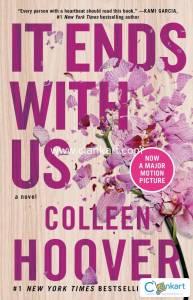Buy used Business & Economics online in India
Buy Second Hand Books, Used Books Online In India
Connect The Dots by Rashmi Bansal
Mahima Mehra did it. Ranjiv Ramchandani did it. Kalyan Varma did it.“ CONNECT THE DOTS “ is the story of 20 enterprising individuals without an MBA, who started their own ventures. They were driven by the desire to prove themselves. To lead interesting, passionate, meaningful lives. Their stories say one thing loud and clear. You don’t need a fancy degree or a rich daddy to dream big and make it happen. It’s all in your head, your heart, your hands.
How to raise your own salary
This new edition of How to Raise Your Own Salary is filled with foolproof techniques for acquiring the knowledge and skills for increasing your share of life's riches. The detailed dialog between Andrew Carnegie and Napoleon Hill will mesmerize you with its message. Simultaneously, this classic work will stimulate your subconscious mind to put into immediate operation your desire for individual achievement. This book will teach you how to: -Win riches, power, and prestige. -Discover how to set your own goal in life and achieve it. -Make life pay you for your personal efforts. -Uncover Andrew Carnegie's entire secret of success. -Retrace step by step the principles of achievement that lifted Carnegie to a position of great affluence and wealth. -Achieve the right mental attitude that places you on the next rung in your ladder to success. -Manifest success in your day-to-day life.
PPM by TN Chhabra
The genus Rhododendron is acclaimed in horticulture for its most elegant, bell-shaped flowers of varied colours. In India, Rhododendron species are found in the Himalayas from Kashmir to Arunachal Pradesh and in the forested mountain tracts of N.E. Indian States. The interest in the Himalayan Rhododendrons began with the discovery of the red flowered R. arboreum in Kashmir in the year 1796 and introduction of its seeds into the English gardens in 1827. J.D. Hooker's travels in Sikkim between 1848-1850 revealed the hidden rhododendron treasure. Following this, series of botanical explorations were undertaken in the Eastern Himalayan region by noted botanists and plant collectors from England bringing forth the richness and species diversity of the genus. Himalayan Rhododendrons have contributed a great deal in developing many horticulturally appealing clones and have ensured their importance in a multi-million dollar horticulture trade in the West at par with roses and orchids. In India, the species in the Western Himalaya and Sikkim are better known, while the species that inhabit the densely forested inaccessible mountains in Arunachal Pradesh and other N.E. Indian states largely remained less known or even unknown. Thus there has been no comprehensive account of all the species of the genus in the country leaving a wide gap to know the Indian rhododendrons wholly and from a single source. Hence this book. The book provides detailed taxonomic treatment of the genus in India with workable keys to the subgenera, different sections, sub-sections, species and sub-specific taxa with botanical descriptions. Colour photographs for many species, line drawings for about 20 species, distribution maps for all the species are provided to enhance the scientific value of this book as a Reference Manual for the use of botanists, teachers, students, foresters, nature lovers and conservationists. In short this book is the need of the hour for planning appropriate scientific conversation measures to safeguard the rhododendron spe
Rich Dad, Poor Dad
This book will:* Explode the myth that you need to earn a high income to become rich* Challenge the belief that your house is an assett* Show parents why they can't rely on the school system to teach their kids about money* Define once and for all an assett and a liability* Teach you what to teach your kids about money so they will benefit in ways you did not
It ends with us
Sometimes it is the one who loves you who hurts you the most.Lily hasn’t always had it easy, but that’s never stopped her from working hard for the life she wants. She’s come a long way from the small town in Maine where she grew up — she graduated from college, moved to Boston, and started her own business. So when she feels a spark with a gorgeous neurosurgeon named Ryle Kincaid, everything in Lily’s life suddenly seems almost too good to be true.Ryle is assertive, stubborn, maybe even a little arrogant. He’s also sensitive, brilliant, and has a total soft spot for Lily. And the way he looks in scrubs certainly doesn’t hurt. Lily can’t get him out of her head. But Ryle’s complete aversion to relationships is disturbing. Even as Lily finds herself becoming the exception to his “no dating” rule, she can’t help but wonder what made him that way in the first place.As questions about her new relationship overwhelm her, so do thoughts of Atlas Corrigan — her first love and a link to the past she left behind. He was her kindred spirit, her protector. When Atlas suddenly reappears, everything Lily has built with Ryle is threatened.
Indian Economy for IAS
The Teachers Of Indian Economics Have Been Feeling The Need For A Text-Book Which Highlights The Problems Of Growth And Presents A New Approach To The Study Of Indian Economy. This Book Makes An Attempt To Discard The Traditional Approach To The Subject And Present A Development Oriented Study Of The Indian Economy.
























